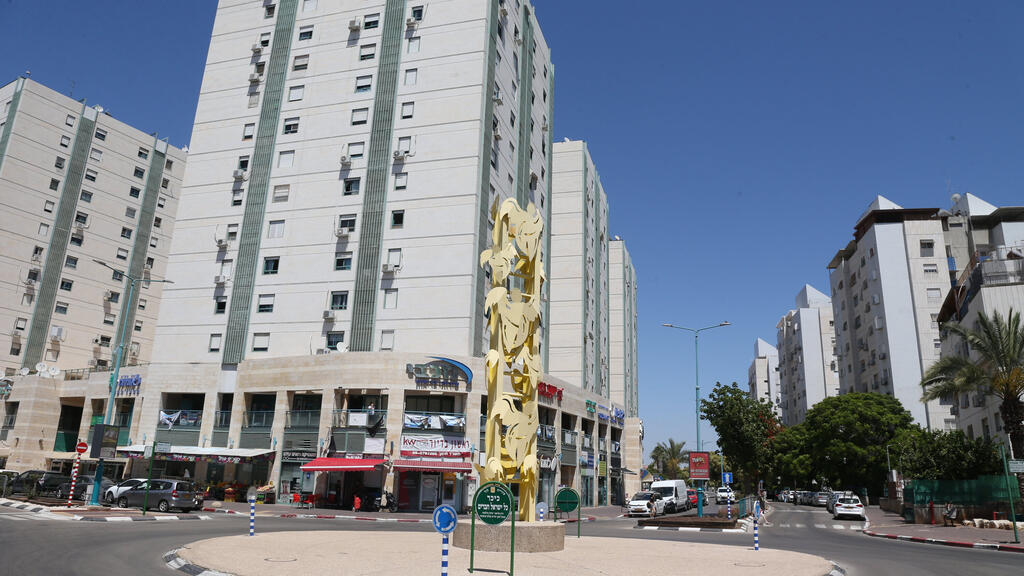A Finance Ministry report on Israel’s housing market published on Wednesday reported that 7,619 apartments were purchased in January 2025, including government-subsidized units, marking one of the lowest January levels in over a decade.
Home sales dropped 5% compared to January 2024, which was still affected by the outbreak of the war in Gaza. Compared to December 2024, when buyers rushed to close deals ahead of a VAT increase, transactions fell by 32%.
Excluding subsidized sales, 6,679 apartments were sold on the open market in January, a 6% drop year-on-year and a 32% decline from December. Preliminary February data also indicate low transaction levels, suggesting that January's slump wasn’t solely due to the VAT-driven rush in December.
A long-term comparison of open-market January sales since 2000 shows that January 2025 was among the weakest in 23 years, with only the Januarys of the Second Intifada in 2005 and the 2009 global financial crisis recording lower figures. The decline stemmed from both the resale market and new home purchases, though resales had been the primary drag in previous months.
Real estate developers sold 2,878 apartments in January, including subsidized units. Aside from October 2024, which was impacted by holiday slowdowns, this marked the weakest month for developer sales since December 2023, when the war broke out.
Compared to January 2024, developer sales fell 23% and plunged 51% from December. Excluding subsidized units, open-market developer sales totaled 1,938 — a 29% drop from January 2024 and a 57% drop from December.
The share of new apartments bought "on paper" remained high at 67%, similar to December’s level, the highest since March 2023. This marks an 8-percentage-point increase from January 2024, likely driven by developers’ financing deals.
Based on VAT transaction reports before input deductions, the actual developer cash flow from new home sales totaled NIS 3.5 billion ($970 million) in January, far below the potential NIS 6.3 billion ($1.75 billion), reflecting the impact of financing promotions.
Get the Ynetnews app on your smartphone: Google Play: https://bit.ly/4eJ37pE | Apple App Store: https://bit.ly/3ZL7iNv
This marked a 31% real decline from January 2024 and a steep 78% drop from December, which saw a spike ahead of the VAT hike. For the first time since April 2023, developers' net cash flow after input deductions was negative.
The Finance Ministry found that after a sharp rise in December 2024 in deals benefiting from developer financing incentives, January saw a significant drop in such transactions in Tel Aviv and Hadera, though levels remained high.
In Hadera, financing deals accounted for half of developer sales, while in Tel Aviv, they made up a quarter. In Israel’s central region and Be'er Sheva, financing deals remained steady at 44% and 40%, respectively, both higher than in November. Netanya was the only region among the five analyzed where the share of such deals increased in January, reaching 45%.
Resale transactions totaled 4,741 units in January, up 9% from January 2024, contrasting with the 6% decline in new home sales. However, the Finance Ministry noted that January 2024 saw exceptionally low resale activity due to the war and a higher preference for apartments with safe rooms.
Despite the increase, January 2025 remained one of the weakest resale months since 2000, with only the Second Intifada years and 2023-2024 showing lower figures.
Investor purchases in January reached 1,196 units, up 3% year-over-year but down 37% from December. Investors accounted for 15.7% of all transactions, a 1.3-percentage-point increase from January 2024 but a 1-point drop from December.
The share of new apartments in investor purchases declined significantly. Investors sold 1,337 apartments, down 4% from the previous year and 19% from December. First-time buyers purchased 4,340 apartments in January, including subsidized units — a 6% drop from January 2024 and a 36% decrease from December’s peak.
Excluding subsidized units, first-time buyers bought 3,400 apartments on the open market, down 7% year-over-year and 37% from December. Move-up buyers purchased 2,082 apartments, an 8% decline from January 2024. Meanwhile, a significant rise was seen in the share of homeowners downsizing.





